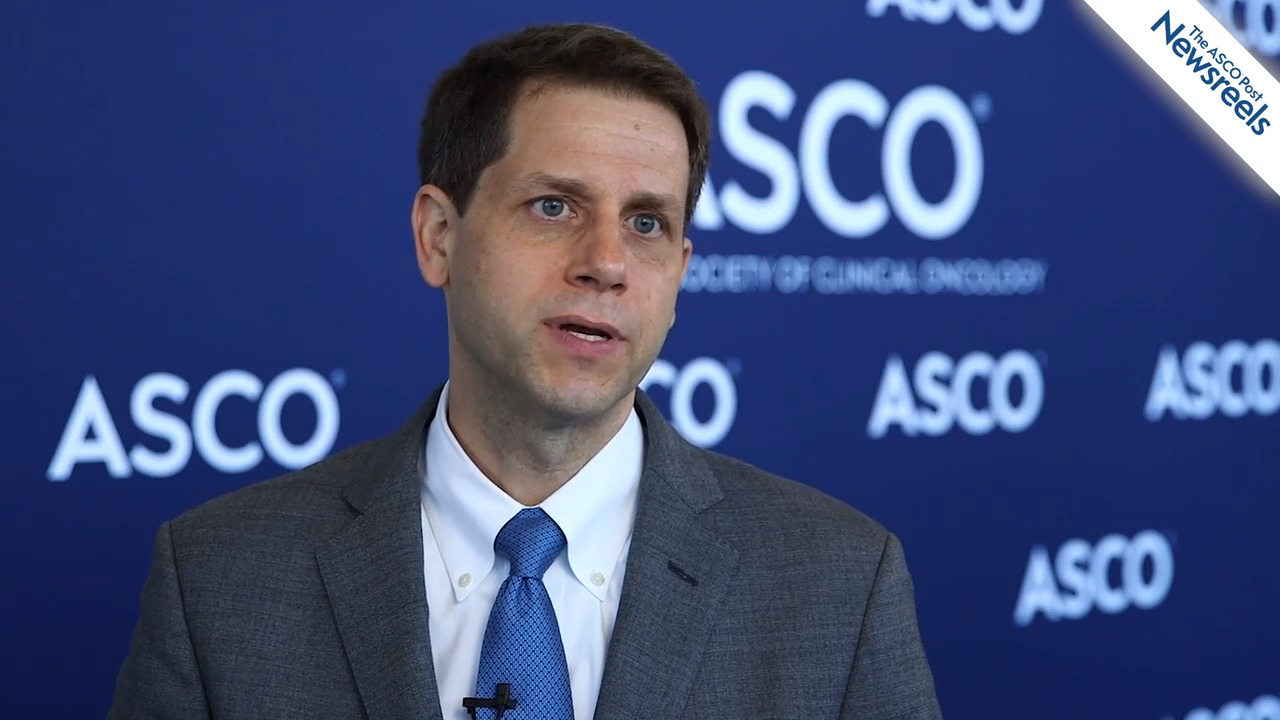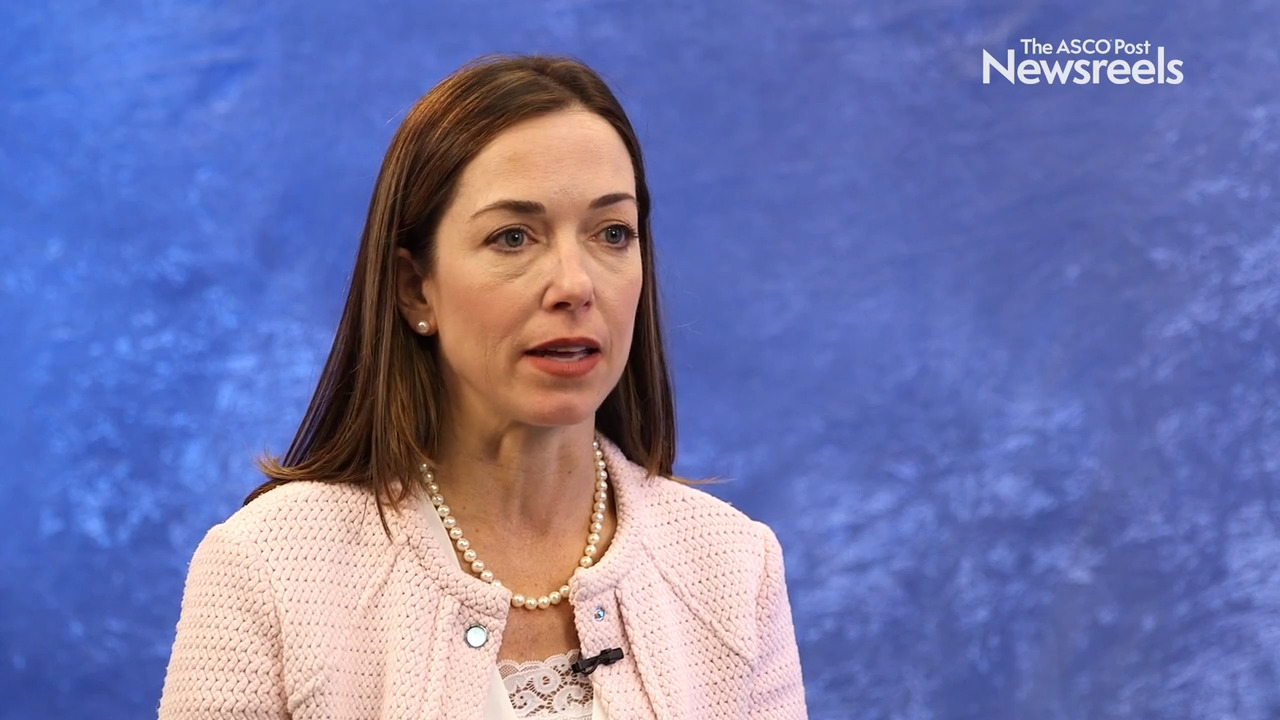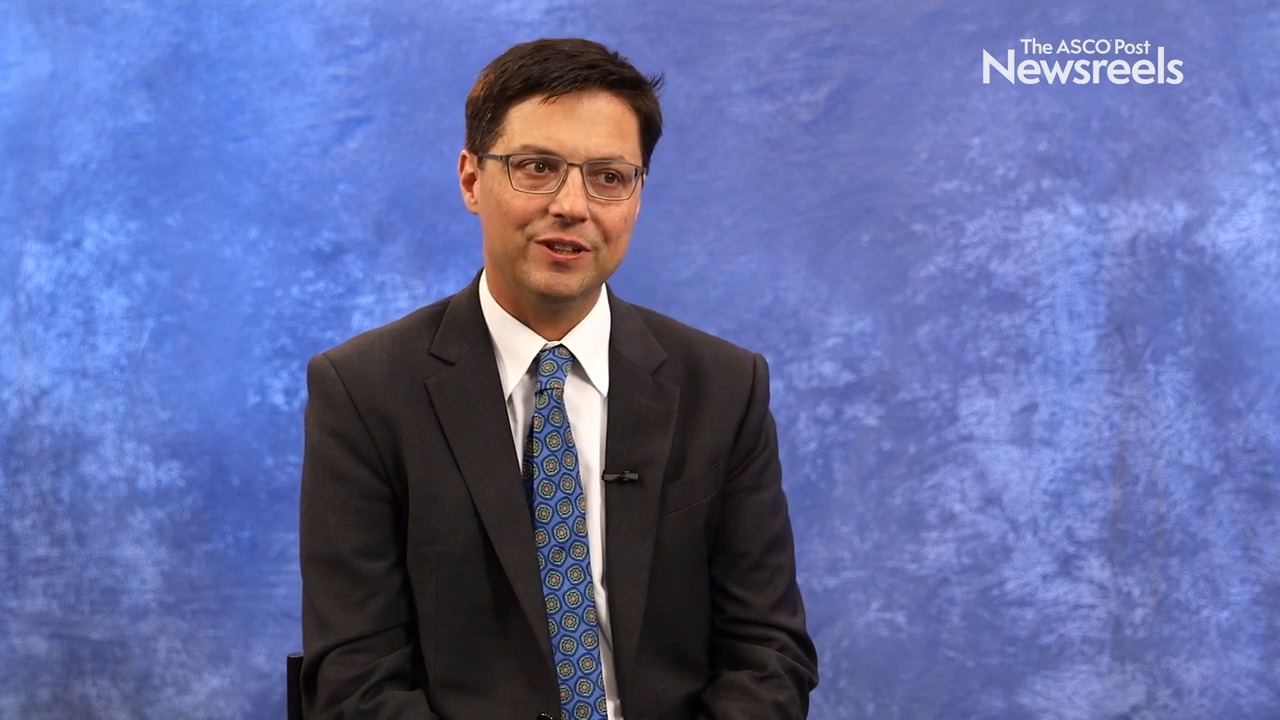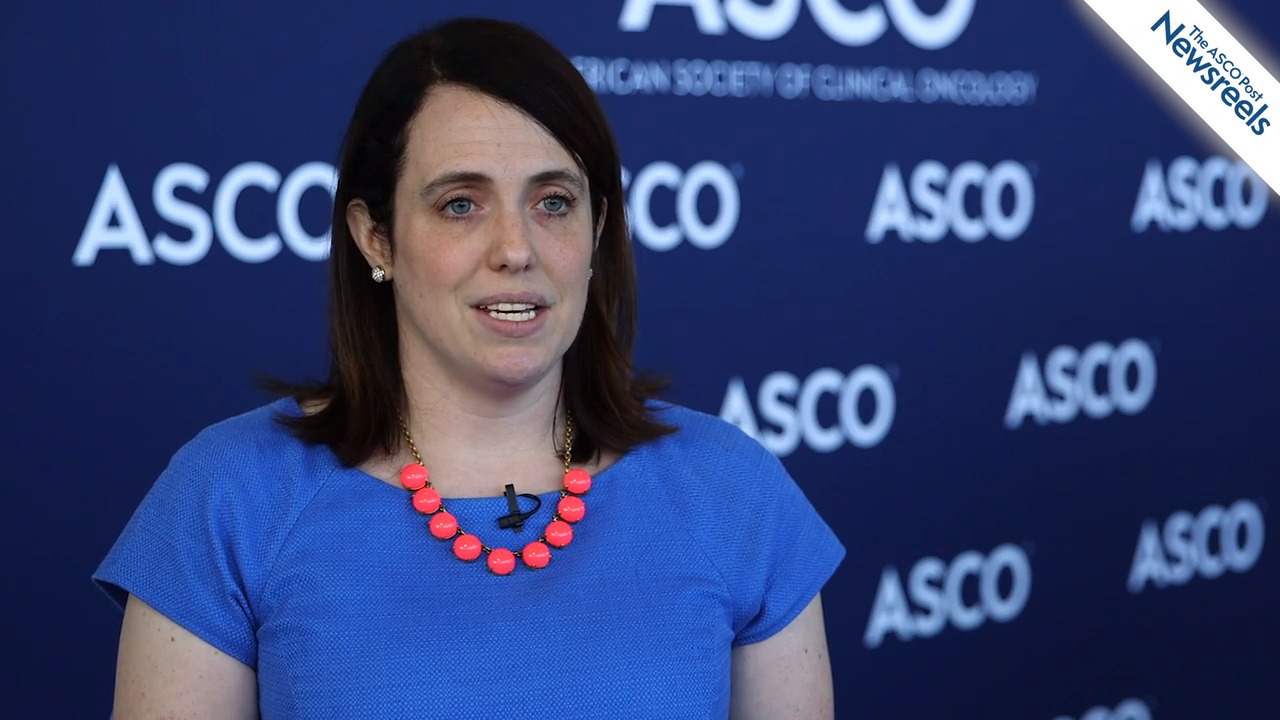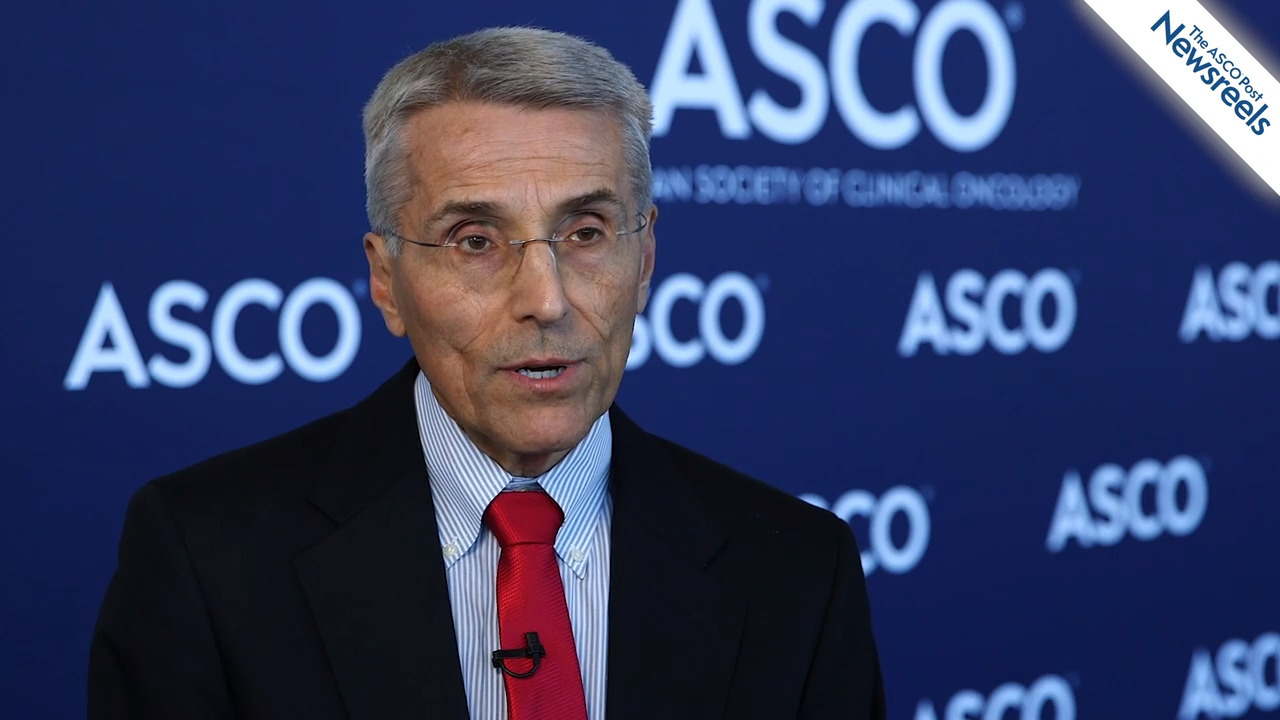Hope S. Rugo, MD, and Matteo Lambertini, MD, PhD, on the SOPHIA Trial in HER2-Positive Metastatic Breast Cancer: Chemotherapy Plus Margetuximab vs Trastuzumab
2019 ASCO Annual Meeting
Matteo Lambertini, MD, PhD, of the University of Genova and Policlinico San Martino Hospital, and Hope S. Rugo, MD, of the University of California, San Francisco, discuss findings from the SOPHIA trial on margetuximab plus chemotherapy vs trastuzumab plus chemotherapy in patients with HER2-positive metastatic breast cancer after prior anti-HER2 therapies (Abstract 1000).
William D. Tap, MD, of Memorial Sloan Kettering Cancer Center, discusses negative study findings on doxorubicin plus olaratumab vs doxorubicin plus placebo, which showed no difference in overall survival between the two treatments in patients with advanced soft-tissue sarcomas. The manufacturer is currently withdrawing olaratumab from the global market (Abstract LBA3).
Sara A. Hurvitz, MD, of the UCLA Jonsson Comprehensive Cancer Center, discusses the first study of ribociclib plus endocrine therapy vs endocrine therapy alone to demonstrate significantly longer overall survival in peri- and premenopausal women with advanced breast cancer (Abstract LBA1008).
Leonard J. Appleman, MD, PhD, of UPMC Hillman Cancer Center, discusses phase III trial findings that showed a trend toward worse survival with pazopanib in patients with metastatic kidney cancer who exhibited no evidence of disease following metastasectomy (Abstract 4502).
Kerry A. Rogers, MD, of The Ohio State University, discusses a 3-year follow-up of phase Ib safety and efficacy findings with the selective BTK inhibitor acalabrutinib and the anti-CD20 monoclonal antibody obinutuzumab in patients with CLL (Abstract 7500).
Richard Pazdur, MD, Director of the U.S. Food and Drug Administration (FDA) Oncology Center of Excellence and Acting Director of the Office of Hematology and Oncology Products in the FDA’s Center for Drug Evaluation and Research, discusses the launch of Project Facilitate, a new pilot program to assist oncology health-care professionals in requesting access to unapproved therapies for patients with cancer.
Contact Information for Project Facilitate
Health-Care Professionals
Call: 1-240-402-0004
Patients and Their Families
Call: 301-796-3400
